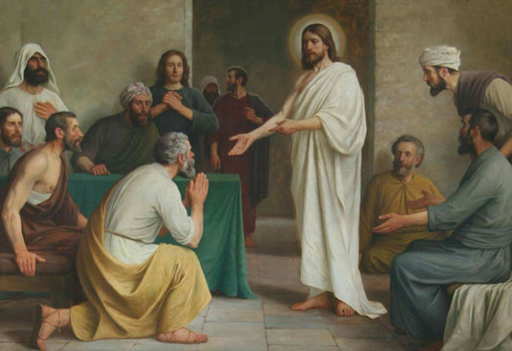 Before becoming a Christian, I had no idea what to do with my empty, boring and meaningless life, even though I became a doctor and came to the U.S. A quote by Henry David Thoreau intrigued me: "The masses of men lead lives of quiet desperation." I thought I was the only miserable person in the world, but this quote assured me that everyone else in the world was just as inwardly desperate and miserable as I! But by God's mercy and grace I became a Christian at 25 in 1980 when I studied Genesis with Dr. John Lee, a pediatric resident at CCH. I discovered who I was and still am–a sinner condemned unclean, yet so loved by God that He gave His Only Son to die for me! I found my purpose of life: To live for Christ and His kingdom by studying the Bible and raising disciples–the bedrock of UBF ministry; this became what God has enabled me to do for the last 4 decades of my life to this day. During a recent 2 week road trip to 7 east coast UBF churches, an older missionary asked me, "What are you doing now?" I answered, "I'm doing exactly what I've been doing for the last 40 years." Despite the many good and bad, and the many ups and downs, my trajectory of life in Christ has not changed one iota in 4 decades.
Before becoming a Christian, I had no idea what to do with my empty, boring and meaningless life, even though I became a doctor and came to the U.S. A quote by Henry David Thoreau intrigued me: "The masses of men lead lives of quiet desperation." I thought I was the only miserable person in the world, but this quote assured me that everyone else in the world was just as inwardly desperate and miserable as I! But by God's mercy and grace I became a Christian at 25 in 1980 when I studied Genesis with Dr. John Lee, a pediatric resident at CCH. I discovered who I was and still am–a sinner condemned unclean, yet so loved by God that He gave His Only Son to die for me! I found my purpose of life: To live for Christ and His kingdom by studying the Bible and raising disciples–the bedrock of UBF ministry; this became what God has enabled me to do for the last 4 decades of my life to this day. During a recent 2 week road trip to 7 east coast UBF churches, an older missionary asked me, "What are you doing now?" I answered, "I'm doing exactly what I've been doing for the last 40 years." Despite the many good and bad, and the many ups and downs, my trajectory of life in Christ has not changed one iota in 4 decades.
God has blessed my wife Christy and I with 4 kids in 6 years (1983-1989), and with 7 grandkids with James 13 and Annabelle 11 as the 2 oldest. A few months ago James told his dad that he wanted grandpa to baptize him before going to Whitney Young. I was so happily surprised. Then Annabelle also asked to be baptized, which made me doubly happy. In processing my joy, I thank God that Christy and I are blessed to pass on God's blessing to our oldest son Sam and to our oldest grandson James and to our oldest grand-daughter Annabelle.
This is nothing but the mercy and grace of God. I thought of God's desire to bless not only Abraham but also all of his descendants for countless generations. Gen 17:9 says, "Then God said to Abraham, 'As for you, you must keep my covenant, you and your descendants after you for the generations to come.'" God called Abraham to bless not only him but also to bless "all peoples on earth" through his seed (Gen 12:2-3). The greatest blessing is not what we get, but what we give to others. What a great joy and privilege it is that despite our sins God has given us the blessing to be a blessing to others–including our grandchildren.
It was a joy to study the Bible with James the last few months. He loves sports, just like his dad and grandpa. He studies well and plays basketball. He is sincere, thoughtful and intelligent. And he wants to commit his life to Christ by being baptized as he goes to Whitney Young with the verse "The Lord is my shepherd" (Ps 23:1). I told James that if Christy and I live another 20 years, we pray to see him and Annabelle pass their faith in Christ to their son or daughter. May God bless James and Annabelle's baptism as their decision to follow Jesus as Lord all the days of their life and pass it on to subsequent generations. Amen.








